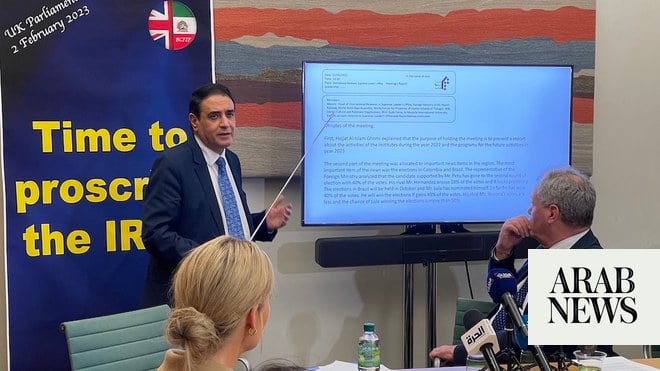
President-elect sets out his demands if US is to return to 2015 nuclear deal
JEDDAH: US President-elect Joe Biden warned Iran it must address the “malign” regional activities it carries out through proxies if it wants the US to rejoin the 2015 nuclear deal.
In an interview published in the US media on Wednesday, Biden also warned that if Tehran acquires a bomb it could spark a nuclear arms race in the Middle East “and the last goddamn thing we need in that part of the world is a buildup of nuclear capability.”
He said: “Look, there’s a lot of talk about precision missiles and all range of other things that are destabilizing the region,” and added: “In consultation with our allies and partners, we’re going to engage in negotiations and follow-on agreements to tighten and lengthen Iran’s nuclear constraints, as well as address the missile program.”
Responding to Biden’s comments, political analyst Hamdan Al-Shehri told Arab News that in pursuit of the 2015 nuclear deal, more formally known as the Joint Comprehensive Plan of Action (JCPOA), former US President Barack Obama turned a blind eye to the Iranian militias operating throughout the region, and to Tehran’s ballistic-missile program.
“Biden can do the opposite by exerting pressure on Iran over its regional proxies and ballistic missiles,” Al-Shehri said. “Biden also reassured Washington’s allies in the region that negotiations with Iran would be different this time and more specific.”
“While this development is a step in the right direction, it still does not adequately address major problems with the JCPOA,” said Harvard scholar and Iranian affairs expert Majid Rafizadeh
“First of all, Biden must include Iran’s neighbors in the negotiations. When the JCPOA was being negotiated they were needlessly excluded, despite living on the country’s doorstep and experiencing the consequences of Iranian proxy action more acutely than any of the deal’s signatories.
“This (resulted in) a flawed agreement that failed to recognize their rightful concerns about missile proliferation and the funding of violent proxies within and next door to their territories.”
The political temperature in Tehran is rising, however. The Guardian Council, a watchdog body, has approved a law obliging the Iranian government to halt UN inspections of its nuclear sites and step up uranium enrichment beyond the limit set under the 2015 deal, if US sanctions are not eased within a month. In retaliation for the assassination of Iran’s top nuclear scientist last week, which Tehran has blamed on Israel, the Iranian parliament on Tuesday approved the bill with a strong majority, which will harden the country’s nuclear stance.
Al-Shehri said that it seems as if Iran’s latest actions are designed to attract the attention of the new administration in Washington.
“(President Hassan) Rouhani has rejected the Iranian parliament’s recent bill, because it would obstruct Iran’s diplomatic efforts,” he said. “Iran knows that it cannot take any more risks and is trying to find a solution because it is being economically drained under sanctions.”
Reports in the US media said during a new round of negotiations the Biden administration will seek to extend the duration of “restrictions on Iran’s production of fissile material that could be used to make a (nuclear) bomb.”
The 2015 deal caps the fissile purity to which Iran can refine uranium at 3.67 percent, which is less than the 20 percent the nation achieved before the deal, and far below the weapons-grade requirement of 90 percent. However, Iran breached the 3.67 percent limit in July last year and the enrichment level has remained at up to 4.5 percent since then. Iran has also contravened many of the deal’s other restrictions.
Rafizadeh also warned that in addition to its nuclear ambitions, Tehran’s other disruptive and destabilizing behavior must be addressed.
“How will Iran’s ballistic missile program be incorporated in the deal?” he asked. “How exactly will the deal address Iran’s malign behavior in the region and support for terror groups?
“We should remember that after two years of negotiations with the Obama administration, the JCPOA ended up being in Iran’s favor, with Tehran receiving many concessions from world powers.”
Rafizadeh also urged caution in the lifting of sanctions, which he said should be used as an incentive for compliance.
“Biden is also implying that sanctions will be immediately lifted once a deal is reached with Iran,” he said. “Lifting of sanctions must be gradual and contingent on Iran’s compliance. If sanctions are lifted immediately, as they were in 2015, the international community will again lose its leverage against Tehran.”












